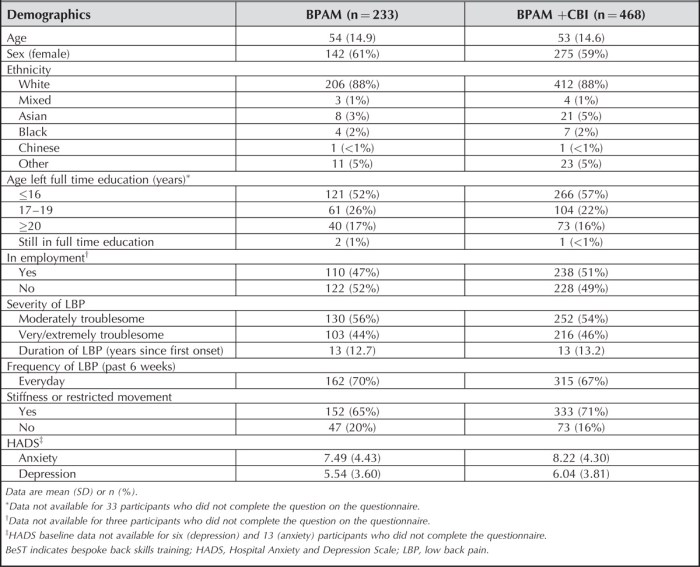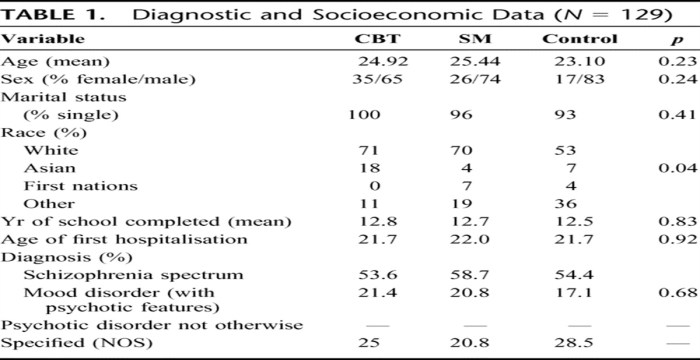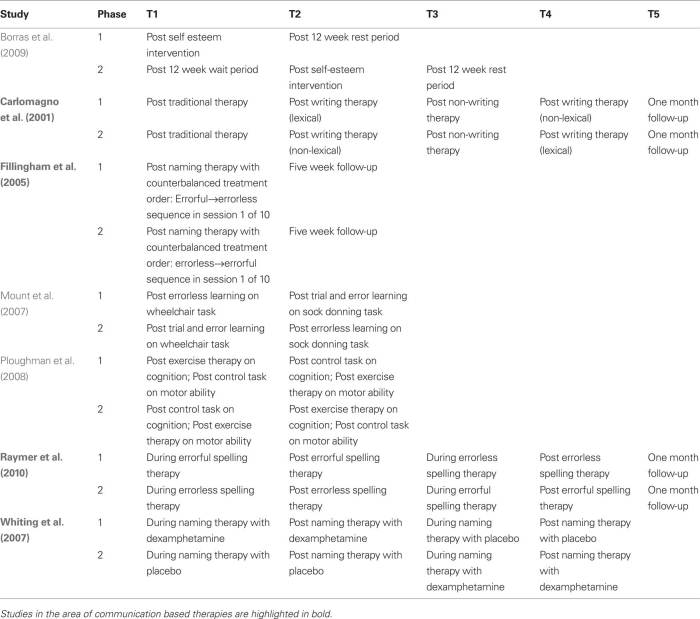Scales of cognitive and communicative ability for neurorehabilitation – Scales for cognitive and communicative abilities in neurorehabilitation play a pivotal role in assessing and treating individuals with neurological impairments. These scales provide clinicians with objective measures to evaluate cognitive functions, such as attention, memory, and executive function, as well as communicative abilities, including language comprehension and production.
By understanding the strengths and limitations of different scales, clinicians can tailor interventions to meet the specific needs of each patient.
This comprehensive guide explores the various cognitive and communicative scales used in neurorehabilitation, their applications, and their implications for treatment planning. It also highlights future directions in scale development and the potential of emerging technologies to enhance assessment and intervention.
Cognitive Scales for Neurorehabilitation

Cognitive scales are essential tools in neurorehabilitation, providing a comprehensive assessment of cognitive abilities to guide treatment planning and monitor progress. These scales evaluate a range of cognitive domains, including attention, memory, language, executive functioning, and visuospatial skills.
Standardized Cognitive Scales
- Montreal Cognitive Assessment (MoCA):A brief and widely used screening tool for cognitive impairment, covering attention, memory, language, and executive functioning.
- Mini-Mental State Examination (MMSE):A widely recognized scale used to assess global cognitive functioning, including orientation, memory, attention, and language.
- Wechsler Adult Intelligence Scale (WAIS):A comprehensive battery of tests that assesses verbal and performance intelligence, providing detailed profiles of cognitive strengths and weaknesses.
Domain-Specific Cognitive Scales
- Attention and Executive Functioning Scale (AEFS):Assesses attention, planning, working memory, and inhibition.
- Rey-Kim Memory Profile:A comprehensive assessment of memory functions, including verbal and nonverbal memory.
- Boston Naming Test:A standardized test for assessing language abilities, particularly naming and word retrieval.
Strengths and Limitations
Cognitive scales provide valuable insights into cognitive abilities, aiding in diagnosis, treatment planning, and monitoring progress. However, they have limitations, including cultural biases, ceiling effects, and potential practice effects. It is crucial to use scales in conjunction with other assessment tools and consider individual patient factors.
Communicative Scales for Neurorehabilitation: Scales Of Cognitive And Communicative Ability For Neurorehabilitation

Communicative scales play a vital role in neurorehabilitation, assessing communication abilities and guiding interventions to improve communication skills. These scales evaluate various aspects of communication, including language comprehension, expression, and social interaction.
Standardized Communicative Scales, Scales of cognitive and communicative ability for neurorehabilitation
- Communication Activities of Daily Living (CADL):Assesses communication skills in real-life situations, focusing on daily activities.
- Functional Communication Profile (FCP):Evaluates communication abilities across different contexts and modalities.
- Pragmatic Language Assessment Instrument (PLAI):Assesses pragmatic language skills, including social communication and discourse.
Domain-Specific Communicative Scales
- Aphasia Quotient (AQ):Assesses language comprehension and expression in aphasia.
- Oral Language Production Scale (OLPS):Evaluates expressive language skills in children.
- Social Communication Questionnaire (SCQ):Assesses social communication skills in individuals with autism spectrum disorder.
Strengths and Limitations
Communicative scales provide valuable information about communication abilities, aiding in diagnosis, treatment planning, and monitoring progress. However, they have limitations, such as variability in scoring and potential biases. It is essential to use scales in conjunction with other assessment tools and consider individual patient factors.
Interrelationship between Cognitive and Communicative Abilities

Cognitive and communicative abilities are closely intertwined, with cognitive impairments often impacting communication skills. For instance, attention deficits can affect comprehension, while memory impairments can hinder language expression. Conversely, communication interventions can address cognitive deficits by providing structured opportunities for cognitive stimulation and practice.
Cognitive Impairments and Communication Skills
- Attention deficits:Difficulty focusing and sustaining attention can impair comprehension and conversation.
- Memory impairments:Difficulty remembering information can affect language comprehension and production.
- Executive functioning deficits:Impaired planning, decision-making, and inhibition can affect communication initiation and social interaction.
Communication Interventions and Cognitive Deficits
- Attention training:Exercises to improve attention span and focus can enhance comprehension.
- Memory strategies:Techniques to improve memory recall can support language expression.
- Cognitive stimulation therapy:Activities designed to stimulate cognitive functions can improve communication skills.
Application of Scales in Neurorehabilitation
Cognitive and communicative scales are essential tools in neurorehabilitation, guiding assessment, treatment planning, and monitoring progress. Scales provide objective measures of cognitive and communicative abilities, helping clinicians identify specific areas of impairment and tailor interventions accordingly.
Assessment and Treatment Planning
- Baseline assessment:Scales establish a baseline of cognitive and communicative abilities, guiding treatment planning and setting realistic goals.
- Progress monitoring:Scales track changes in cognitive and communicative abilities over time, allowing clinicians to adjust interventions and evaluate effectiveness.
- Treatment tailoring:Scales help identify specific cognitive and communicative deficits, allowing clinicians to select appropriate interventions.
Importance of Multimodal Assessment
While scales provide valuable information, it is crucial to use them in conjunction with other assessment tools, such as clinical observation, informal assessments, and patient self-report. This multimodal approach ensures a comprehensive understanding of cognitive and communicative abilities.
Future Directions in Scales Development

The field of cognitive and communicative scales is constantly evolving, with new technologies and methodologies emerging to improve scale development. Future directions include:
Emerging Technologies and Methodologies
- Computerized adaptive testing:Scales that adjust item difficulty based on patient responses, providing more accurate assessments.
- Natural language processing:Techniques to analyze and interpret language samples, providing objective measures of communication skills.
- Artificial intelligence:Machine learning algorithms to automate scale administration and scoring, improving efficiency and accuracy.
Potential for Artificial Intelligence
Artificial intelligence has the potential to revolutionize scale development and administration. AI algorithms can analyze large datasets to identify patterns and trends, leading to more precise and personalized scales. Additionally, AI can assist in scale scoring and interpretation, reducing human error and improving objectivity.
Question & Answer Hub
What is the purpose of cognitive scales in neurorehabilitation?
Cognitive scales assess cognitive functions, such as attention, memory, and executive function, to identify impairments that may affect an individual’s ability to participate in daily activities and rehabilitation interventions.
How are communicative scales used in neurorehabilitation?
Communicative scales evaluate language comprehension and production abilities, including receptive and expressive language, to determine the extent of communication difficulties and guide appropriate interventions.
What is the relationship between cognitive and communicative abilities in neurorehabilitation?
Cognitive impairments can impact communication skills, as cognitive functions are essential for understanding language, producing speech, and participating in social interactions.
How are scales used in the assessment and treatment of neurorehabilitation patients?
Scales provide objective measures to assess cognitive and communicative abilities, which helps clinicians develop individualized treatment plans, monitor progress, and evaluate the effectiveness of interventions.